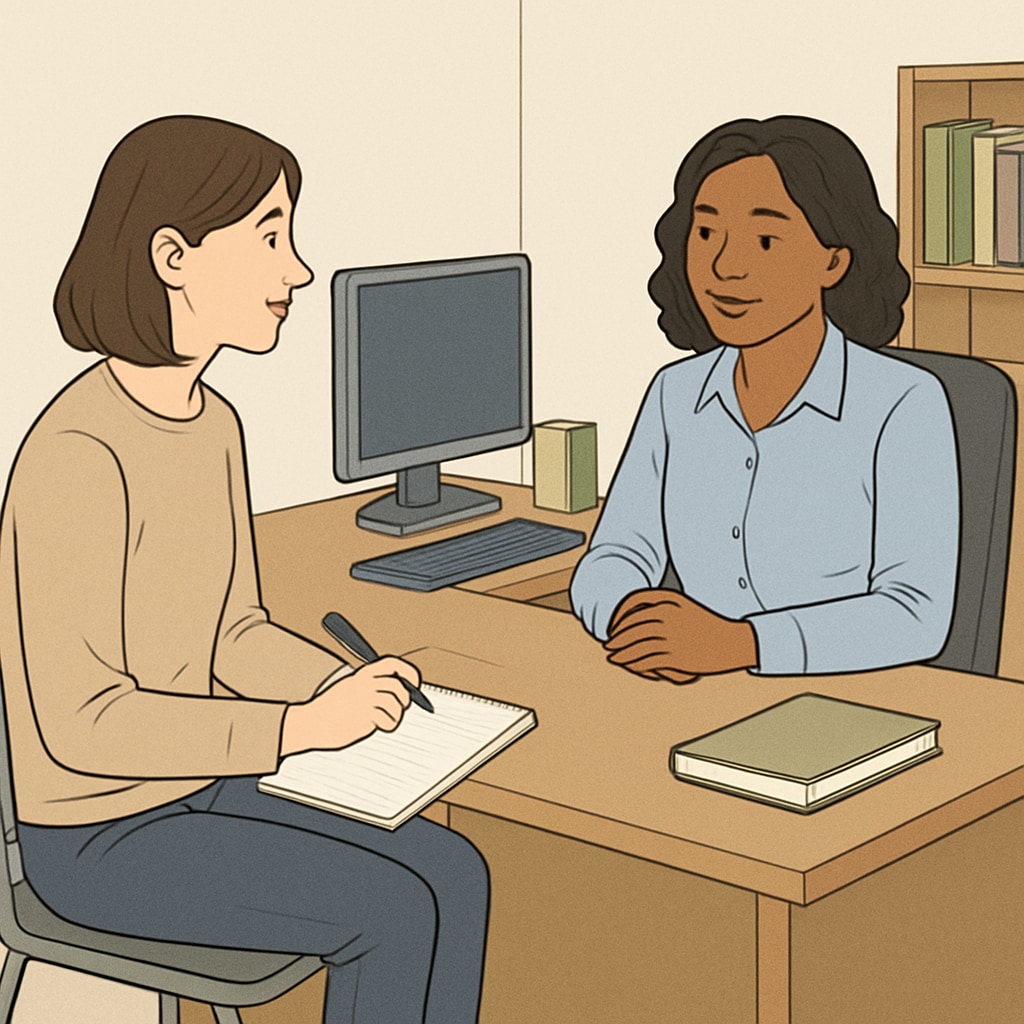Interviewing school counselors for academic research is often a critical component of graduate students’ coursework and thesis preparation. However, many students encounter significant obstacles in accessing these professionals, which can hinder the quality and depth of their research. This article delves into the reasons behind these challenges, offers practical solutions, and highlights the importance of gaining insights from school counselors in educational studies.
Why Interviewing School Counselors Is Challenging
Graduate students often aim to gather firsthand perspectives from school counselors to enrich their research. However, logistical, institutional, and communication barriers frequently complicate this process. Here are some key challenges:
- Time Constraints: School counselors often have demanding schedules, making it difficult to secure interviews within limited timeframes.
- Institutional Policies: Schools may have strict protocols for external interviews, requiring permissions that are time-consuming to obtain.
- Misaligned Objectives: Counselors may hesitate to participate if they perceive the research as irrelevant to their work or as an additional burden.
- Communication Gaps: Initial emails or calls may go unanswered due to high workloads or unclear requests.

Strategies to Secure Interviews Successfully
Despite these challenges, there are effective ways to ensure access to school counselors and conduct meaningful interviews. Below are actionable strategies:
- Build Relationships: Establish connections with schools or districts before requesting interviews. Attending school events or volunteering can help build rapport.
- Craft Clear Requests: Ensure your initial communication is concise, professional, and includes the purpose of your research, how their input will be used, and time commitments.
- Leverage University Support: Seek assistance from your academic advisor or department to provide institutional backing for your request.
- Offer Flexibility: Be open to scheduling interviews outside traditional hours or using virtual platforms to accommodate counselors’ busy schedules.
- Use Incentives: If permitted, offer small tokens of appreciation, such as certificates or acknowledgment in your research paper, for their time and expertise.

The Value of Counselors’ Insights
School counselors provide unique perspectives on the dynamics of student development, academic performance, and the challenges faced in modern educational systems. These insights are invaluable for research that aims to improve educational policies, design effective intervention programs, or understand student behavior better. For example:
- They can highlight real-world challenges not captured in academic literature.
- Their experiences can provide qualitative data that enrich the study.
- Collaborating with counselors fosters mutual understanding between researchers and practitioners.
By employing the strategies outlined above, graduate students can overcome barriers and unlock the potential of counselor contributions to their research.
Conclusion
Interviewing school counselors for academic research presents challenges but also offers profound opportunities for meaningful insights. With careful planning, clear communication, and strategic approaches, graduate students can navigate these difficulties and achieve successful interviews. School counselors are key stakeholders in educational research, and their participation is essential for producing impactful studies that benefit the broader education community.
As a result: Taking proactive steps not only ensures access to these professionals but also fosters a collaborative spirit that enhances both research quality and real-world applicability.


